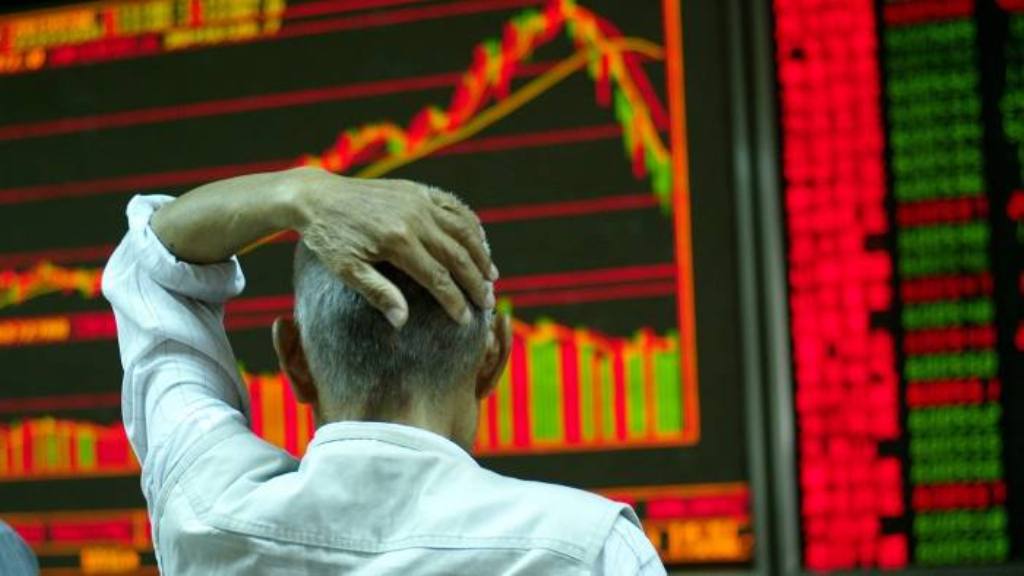Due to the current situation of Covid-19, there seems to be a significant emphasis on saving the economy rather than saving lives, where the Federal Reserve is currently pumping trillions of dollars to make sure that the economy remains lubricated. But the truth of the matter is that the global economy was in a difficult situation prior to the emergence of Covid-19. The virus is not the cause of the economic slowdown, but rather the catalyst, but it seems that the governments are aiming to place the blame upon the virus than the pre-existent economic delicacy. The primary focus should be based upon resolving the Covid-19 crisis, then solving the economy but this is not possible due to the economy’s current disorder, where stocks have been pumped and primed on endless quantitative easing measures long before the virus outbreak.
The American economy is heavily based upon debt-fuelled consumption, that once consumers lose confidence in the system, the entire economy will come to a standstill, which will also lead to disrupting the global economy. The reason for the credit-fuelled consumption is due to big corporations reinvesting their cash into buybacks, bonds and other financial products to increase short term profits. Consequently, the economic recovery remains absent and, instead, inequality and stagnating wages have significantly increased, leading to constrained consumption and reducing productive investment potential within the real economy-flooding concentrated wealth in the financial sector after the housing crisis. The Dodd-Frank Act was established to create and maintain a stable financial system but, instead, it was nothing more than an utter failure. The Act’s failure led to further deaths of small and medium businesses post-2008 crisis. Since America is a consumer-oriented economy, the continuous decline within the real economy ends up affecting the public’s purchasing power. Reason being, because there is no circulation of wealth due to the lack of growth within the main street. From 2000 and 2010, investment in new factories and R&D has declined more than 21 per cent.
The powerful forces like to enforce the idea of the market correcting itself; however, time is simply not true. This rhetoric has been maintained so that the financial corporations and other big corporations can maintain their liberty to generate as much profit as possible. When it all goes to dust, then the government enters to pick up the pieces. This illustrates that the government only intervenes when the interests of the powerful are at stake, not to forget that the government was the one to enforce the policies of economic liberalism in the first place. The government’s primary duty is to manage the affairs of the people based upon correct principles, but here, they are leading the affairs of the few individuals based upon incorrect principles.
Fiat money is the leading cause of booms and busts. The problem with fiat money is that it is not backed by something actually valuable like gold or silver; therefore, the constant manipulation of monetary policies is carried out by the Federal Reserve. Fiat’s value is solely based upon the Fed’s word, a value extracted upon economic trends and sophisticated calculations. For a fiat currency to function, the constant manipulation of interest rates has to be carried out to boost growth within the economy. Thus, a process of quantitative easing is executed to lend more money to the public to increase economic growth.
On the other hand, low-interest rates for an extended period can instigate the devaluation of the currency. If this phenomenon is not dealt with in time, then it would eventually lead to high-levels of inflation-detrimental to the economy. To reverse this dilemma, the monetary contraction policy is carried out to reduce lending, increase the value of the currency and curb inflation. Since the monetary contraction policy raises the interest rates, debt servicing then becomes an issue for the consumers. Thus, this develops into an ongoing cycle of bolstering artificial growth and curbing inflation through the manipulation of interest rates. This cycle similarly replaces the public’s previous debt with new debt to resume economic growth until it reaches a point, where the quantitative easing is no longer able to solve the burden of the public’s debt.
This means that a recession is the inevitable outcome since growth is inevitable to decline. Around every 10-13 years an economic reset is carried out to purchase the public’s debt and replace it with a newly formed debt-a new bubble. Normally immigrants are always the main target for blame but this time it is different. This time the target for blame is Covid-19 to justify the bailouts, so the public does not lose confidence in the capitalist system.
Ownership under capitalism is almost non-existent since the majority of society does not own anything because it is all based upon mortgages and loans. Thus, the freedom of ownership only belongs to the few. Since freedom of ownership is the most prominent thought under the secular liberal ideology. So, reforming capitalism is not going to solve the issue of bubbles from bursting this time or in the future. This is because the whole ideology revolves around capitalism. Neither the solution should be socialism which has also failed, rather miserably. An alternative solution needs to be derived through a process of enlightened thinking and not through the process of pragmatism, which will lead us in a circle of conundrums of booms and busts. Instead, what is needed is a stable economic system based upon gold and silver and zero interest, which does not crumble due to a virus, and that provides confidence to the consumers in society, a system based upon real value, not an artificially inflated one where people remain in constant worry in regards to the future bust.
Muhammed Mustafa
#أقيموا_الخلافة | #ReturnTheKhilafah | #YenidenHilafet

